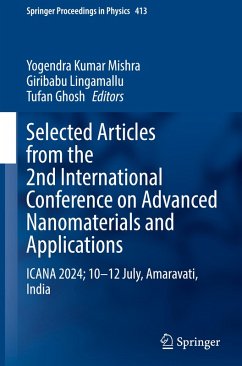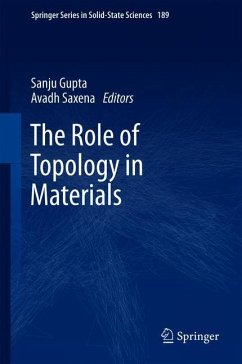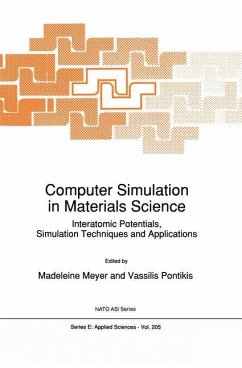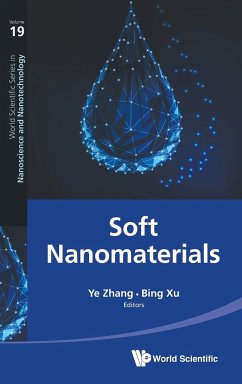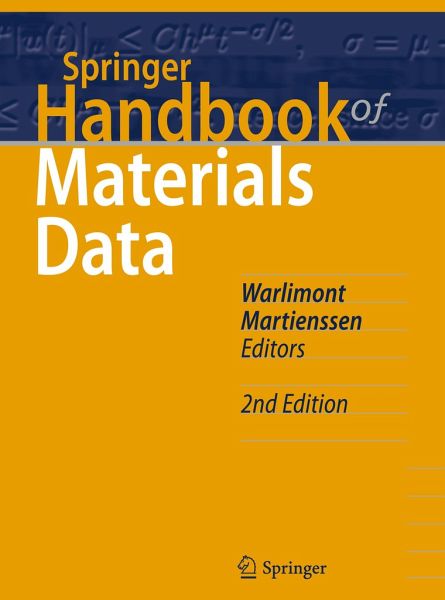
Springer Handbook of Materials Data

PAYBACK Punkte
105 °P sammeln!
The second edition of this well-received handbook is the most concise yet comprehensive compilation of materials data. The chapters provide succinct descriptions and summarize essential and reliable data for various types of materials. The information is amply illustrated with 900 tables and 1050 figures selected primarily from well-established data collections, such as Landolt-Börnstein, which is now part of the SpringerMaterials database.The new edition of the Springer Handbook of Materials Data starts by presenting the latest CODATA recommended values of the fundamental physical constants ...
The second edition of this well-received handbook is the most concise yet comprehensive compilation of materials data. The chapters provide succinct descriptions and summarize essential and reliable data for various types of materials. The information is amply illustrated with 900 tables and 1050 figures selected primarily from well-established data collections, such as Landolt-Börnstein, which is now part of the SpringerMaterials database.
The new edition of the Springer Handbook of Materials Data starts by presenting the latest CODATA recommended values of the fundamental physical constants and provides comprehensive tables of the physical and physicochemical properties of the elements. 25 chapters collect and summarize the most frequently used data and relationships for numerous metals, nonmetallic materials, functional materials and selected special structures such as liquid crystals and nanostructured materials.
Along with careful updates to the content and the inclusion of timely and extensive references, this second edition includes new chapters on polymers, materials for solid catalysts and low-dimensional semiconductors.
This handbook is an authoritative reference resource for engineers, scientists and students engaged in the vast field of materials science.
The new edition of the Springer Handbook of Materials Data starts by presenting the latest CODATA recommended values of the fundamental physical constants and provides comprehensive tables of the physical and physicochemical properties of the elements. 25 chapters collect and summarize the most frequently used data and relationships for numerous metals, nonmetallic materials, functional materials and selected special structures such as liquid crystals and nanostructured materials.
Along with careful updates to the content and the inclusion of timely and extensive references, this second edition includes new chapters on polymers, materials for solid catalysts and low-dimensional semiconductors.
This handbook is an authoritative reference resource for engineers, scientists and students engaged in the vast field of materials science.






